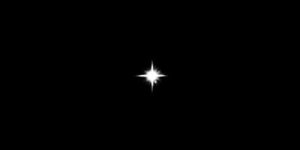Civilization against Culture another war
I am talking about the quasi-ethnic, cultural, passionate and impulsive war. Racial war, one might say, in the sense of the affront made by the race that the 'other' represents.
The more mundane side of warfare, that of the trivial calculation of grabbing other people's property, should be seen rather as a pretext for the expansion of one's own clan and not as the sole fruit of the warlike impulse.
What does man actually gain from what can be considered as one social behaviour among others, so widespread is it on all scales and in all cultures?
Once feelings and bodies are ravaged, exhausted, weary, mutilated, we find ourselves sad. One is usually never happy to have assaulted, despised, scorned; I can't imagine, "killed". As in sex or in a competition, we feel a rush of adrenaline in the conflict. Something animal pushes us 'out of ourselves'. It seems to us that the other person is the first to attack us, by the way they are, by their stupid, "outrageous" or derogatory words. Their whole being is a repellent that must be destroyed; an insult to our own existence, to our points of view. It is a hindrance to our expression, worse still, to our development. And it would be a mistake, a denial of the reality of what we feel, to want to stifle this very tangible feeling. It is stronger than oneself. The other person and all his or her social behaviour with him or her have become the incarnation, the symbol and the flesh of all that we hate. His or her supposed personality crystallises our resentment at failing in our attempts to emancipate ourselves from reality. For we are limited and these limits suddenly take on the face of the enemy. He is a hindrance.
Hate functions like love by taking as its arbitrary object the person who bears on his or her face, in his or her body and gestures, in his or her words, the trace of something known, of something "too" known that calls us.
The detail beckons to us, winks at us and says: "Do you recognise me? From then on, the machine is launched. The gear and its cogs start to move; it is difficult to stop the process. These exasperations, these fantasies of attack or, on the contrary, these effluvia of desire and seduction, seem to have a very real, perfectly concrete basis. Either the provocation is openly effective, or it is induced by the gesture, be it an act, a look, a word or even an omission of manifestation. In all cases, something is triggered. And if "it" is triggered, it is because it has been triggered before, sometimes for ages. Something that was held back finds its release in a sudden permission to be.
Love and hate are exhilarating feelings because they allow us to take a dazzling step, like a spring movement, towards a sense of freedom that only requires an increase in its scope of expression.
At least that's the feeling we get in the moment, in those moments that precede and are the source of the outbreak of hostilities or desire. Yet, very often, the resolution gives us the opposite feeling. That we have fooled ourselves, that we have given in to an impulse that has overridden our intellect. "How did we get here?" is often the question that follows the adventurous journey of war or love.
However, there are sometimes loves that seem to lead to fulfilment, either because our 'thick' unconsciousness postpones the advent of the lucidity to come, or because the story really does lead to a new path, the prospect of which is the promise of a future-filled evolution.
What about 'useful war' then?
Would bloody skirmishes constitute progress or advantage for one or the other of the belligerents? We are taught that "yes" throughout the history of revolutions.
On closer inspection, we often find an interesting character in the recurring and prominent role of the scapegoat in the outcome of conflicts.
A figure rendered unsympathetic when her fate leads to the outcome, as is the case for deposed or executed tyrants, she is called a "martyr" when she is the source of the uprisings. In this sense, many consider that revolution is not war. As in children's disputes, determining the original culprit is tantamount to 'officially' naming the one who started it. This is of course true in most, if not all, cases of domination, whatever form they take. Nevertheless, the passage of time tells us about the real utility of eliminating or severely punishing the dominant: to bring about a change in the state of sensitive which, without the topping out of the hierarchical pyramid, would not be able to renew itself. It does not matter whether this dominant person proved to be weak or strong in the execution of his power. Here again, the relativity of his action is of little importance, except to write the legend. The only efficient criterion for taking action is to exceed our tolerance threshold for the unbearable. What do we find at the end? A panting corpse whose blackish blood tarnishes the glory of the trophy.
But what is the 'unbearable' just before it becomes the 'intolerable'?
In the case of love, it is the irritating limit of unexpressed attraction; for simple desire, whether criminal, envious or passionate, it is the non-fulfilment experienced as a lack; for the desire to fight, it could be the overflow of the insult made to our values, the overstepping of the restrictions of the material level indispensable to a relative comfort of life or the imposed reduction of our capacity to project ourselves into the imagery of a future well-being. In this case, to fight the oppressor is to give oneself an opportunity to re-establish in one's own eyes an acceptable horizon, whether tangible or fictional.
An opportunity to avoid serious or benign quarrels, and thus to live more serenely by reserving one's strength for other causes, would be to know better the nature of the threat before taking any action that is difficult to reverse. In our human civilisation, this is called "thinking".
Reflection has sometimes had its heyday in the history of peoples in periods when it was fashionable - 'sexy' we would say today - to show intellectual elaboration. Sometimes it was the opposite, when spontaneous action rather than justification was in vogue. But, whatever the era, the question remains the same: what are our mental abilities worth in the face of the frenetic excitement of bodies?
There is no need to wait for dramatic situations to arise to detect the trend of the moment. The confirmation of the coming of a social crisis can be read in the "state of mind" of a population over a given period of time. The desire to consume beyond one's needs, including cultural goods, seems to me to be a good indicator of the state of dependence and therefore of the irascibility of individuals. Seeing, hearing, consuming, getting information, reading... should not systematically be mistaken for a thirst for discovery. This is, as far as the present Western times are concerned or, to limit myself to what I know, the case of Parisian circles or those of other large assimilated cities, the mark, in my opinion, of a euphoric drift of what is readily called 'the appetite for culture'.
It is not my intention in these lines to make an apology for ignorance and, no more than usual in these pages, I do not claim to be a historian or sociologist, which I certainly am not. This post, like all the others, only bears witness to a personal reflection and above all to an intimate feeling that naturally surfaces through the preoccupations into which my creative reveries suck me, in the face of my concrete life. I therefore write "by instinct", driven by the unfolding of my current process, trying not to "want" to force anything between the meshes of my nets cast adrift. I follow, rather than provoke, the unfolding of my thoughts, because this is the natural direction of my functioning, rightly or wrongly, since the emergence of artistic or conceptual forms is at the heart of my daily life. In this sense, and against all financial logic, thinking or inventing from my simple experience has become curiously more necessary and interesting for me than the spectacle of any other news. This relative retreat, which never seems to have enough time to deliver its full content, does not cut me off from the 'world'. In any case, no more than my slightly more social life did before. I have in charge an inner world "sufficient" to survey it, without finishing to know all its detours and anfractuosities during my remaining life. This world is not autarkic. Its borders are porous to such an extent that they never cease to let in particles from the surrounding worlds directly or by osmosis. The fruits of enthusiasm or discomfort, nothing is lost.
My exasperation with what I consider to be 'stupidity' has not diminished. I simply ask myself today to what extent it is necessary to express it brutally without a thoughtful and adapted form. The major risk, of course, of opting for a posture that is most often silent or absent from the 'debate' is to accumulate such a degree of anger that the outcome can only be frustration if not an explosion. But what explosion would I avoid since I have no intention of cutting off the heads of the kingpins in the neighbourhood? At best I could only impose a useless joust on myself, since it is a bit late to launch myself into a political career. As for the satisfaction of shining for a few minutes to a few hours if I succeeded? All I would get from it is the heaviness of having to manage the controversy and the partisan friendships that have suddenly appeared, which would only be useless clutter since I would not have the desire to make them bear fruit. So I don't care about winning or convincing ideologically. As for the frustration of not existing on the social field, I would rather take pride in not having the vanity to consider my contribution, any more than anyone else's, as important. And yet, my animality does nag at me from time to time.

Fortunately, the scene and its famous catharsis are there to amply satisfy my need for bestial violence.
On this basis, the media's recuperation of theatrical speech, however dismaying or brilliant it may be, in order to turn it into an emblem of political agitation, certainly seems to me to be the most irresponsible and imbecilic social act ever. Similarly, preventing or forcing catharsis is the surest way to open the door to civil violence one day. It is obviously essential, therefore, to leave total freedom to public expression, particularly in the framework of so-called "artistic" representation, beyond any partisan ideology, whatever it may be, unless one is sufficiently politically astute to bring into play the administrative mechanisms that will naturally silence the beast, mechanisms that I would be very surprised to learn are lacking in French society. It is indeed the only truly social function of the stage to allow the evacuation of tensions by identification. At worst, we risk the Beatles and the seats of the Olympia; what proportions with the Shoah? However, these days it seems as if, by dint of clashes and sterile oppositions, we are returning to the old polemics that pitted entertainment against the spectacle or the "auteur" film thirty years ago and which had no more reason to exist. Like fish at the mouth of the sewer, certain audiences also feed on the tail of the catharsis comet and find their satisfaction in the crumbs that the performer's ego leaves them. Spectators and creators transfer, each from their place, their need to escape the limits of reality. It doesn't matter, and too bad for them, I would say, if some are satisfied with a low-end meal and miss out on more refined dishes. If our world has one characteristic, it is that it makes knowledge accessible. It is up to each individual to choose his or her own requirements. The paths are infinitely varied and can be long, but who cares, we have our whole lives to follow them. No one can be forced to follow one slope more than another by prohibition, if the individual has been in a cultural bath corrupted by unhealthy or intolerant thoughts. This will only come from his awakening to a different openness of mind. This is true for everyone, depending on the environment they have often been subjected to and, more rarely, from which they have been able to reveal themselves in depth.
For no more than one becomes an oenologist by getting drunk or a gourmet by gulping down food, one does not become civilised by devouring the television package, theatre subscriptions, excessive cinema or by swallowing exhibition tails and festival programmes.
Let's face it, diversity is not found in the making of crowds. Some people congratulate themselves on the attendance of large theatres as a sign of cultural enthusiasm or, worse still, on the success of cinema cards; I find that we overfill because we underfill. What a difference it makes to decide to enter a little-known museum unpremeditatedly because the moment lends itself to it, rather than to rush in after hundreds of others to see what others still think you should have seen! To cultivate oneself is not to see or read what is being done at the time, but to draw one's own path and to forge one's own sensitive tools outside of any markers.
The new barbarians of today are there, in plain sight, to testify to the opposite. They are to be found as much among the parvenus of good thinking, in need of political expression on social networks, as among the voyeuristic spectators, improvising themselves as fascists for a night. That the demonstrations were supposedly for all or actually against each would not really have been more important if their fleeting appearances had not been indifferently relayed by rhetorical and media stunts. In my opinion, this is the same case as that of dubious comedians, who should not have to comment on the application of laws when, by chance, they stupidly break them out of an excess of self-confidence. That's also acting on the left. It's a strange definition of current events that buzzes like a fly in the ear of legislators and private individuals alike, when all we have to do is let the animal smoke itself out and asphyxiate in its burrow. In either case, laws are passed or applied; it was necessary to think before delegating one's powers if one did not agree with the principle, or to give oneself the means to overthrow the republic. It is therefore useless to equip oneself with the wings of a small Saint Just when one knows that one will not go to the scaffold. Our revolutionary forebears or others, after having spilled streams of blood, finally bequeathed us the status of petty bourgeois, well. I don't see us now, as far as the majority of people are concerned, all tendencies taken together, exactly following in their footsteps on the path of the barricades, with a lot of "likes" clicked on Facebook. What more could be said?
No, social movement is not, by far, systematically the heart of human existence, any more than journalistic commentary is the source of philosophy. Agitation dons the rags of conviction as excited desire does the frusks of feeling. For me, one is as good as the other. I don't see any particular hierarchy between indulging one's desires with a passing partner and feeling transported with love for one's idol of the moment, except that one wants to make one believe in happiness. The only real novelty would be to put a damper on one's beliefs. Our entire social world is still reduced to beliefs, so narrow and eternally derisory is it, by not taking this simple and sad postulate into account. Wretched beliefs, opinions and points of view, which the absence of hindsight as much as a deficient curiosity, regularly prevents from being analysed with a critical eye. Nothing seems to me more harmful than the passionately phoney reaction, given in the heat of the moment by falsely indignant Internet users, since they are not really affected in their vital environment. After a certain interest in the phenomenon at the beginning, the sensational reportage, camcorder in hand, the moody tweet, the untimely declaration or the courageous display of impulsive exchanges behind one's computer via social platforms, do not really seem to me today to favour the best of what humans have. The Internet, despite the genius of its operation, has nothing to envy to the café du commerce. Just as the dry white wine at 8am taken on the bar ensures that the day is opened with a fine selection of popular imbecilities, the intoxication of feeling important by means of micro-reactions to events in order to impress the gallery, guarantees with the same effectiveness, to ignore one's own depth every day and with every connection. If we look into it a little before posting, we can probe the potentially abysmal emptiness that our envelope may contain, through a barely perceptible comparative study of the appalling mediocrity of exchanges.
Knowledge: zero; relevance: no better.
Yet a little bit of inner life, just kept to oneself and broadcast for its own sake, would create just as much sympathetic silence on the airwaves, on the streets, on the web and of course on television. But one should not ask too much of it. The business is too rich and awakens too much appetite. Democracy undoubtedly includes freedom of expression, but also freedom of thought. A little abuse of it within oneself would not harm it any more than turning it into a bawling and stupid icon. But it is true that to think and stay at home, one must already have the luxury of a 'home'. It's curious that it's not those who don't have one that we hear the most. As long as you're shouting, you're in good health. I imagine that the humiliation of being homeless stimulates the vocal cords less. No doubt you don't have to wait for this extreme to claim your "right" to exist, I'm told by the real left. This would undoubtedly be true if real misery were not silent and if the paradox of a society as cruel and indifferent as ours only allowed those who have some voice to be heard.
Yes, we could, both of us, stay at home for a while, since we have the benefit of it, to think softly and in the relative silence of our voices, we could hear the murmur of those who will have the pleasure of not daring to bring it back too much. Real outcasts rather than their mediators, real children rather than their parents, real victims rather than their protectors. Oh, it wouldn't take long, of course, for these people, having been revived, to take up the torch of publicly stated boastful stupidity in their turn, but it would certainly create a nice moment of suspended time. A time, perhaps similar to the one that occurs just after the last bomb of an ending armed conflict has gone off, which I imagine would be hypnotic for those who no longer expect it. For there is an end to everything. An intelligent form of expression would sometimes be to anticipate it.
Yes, if, after this short retreat from the spoken word, one realised that one did not have that much to say, one could more often be content with the confines of the theatres to come and deliver a few bizarre assertions to those who alone would wish to hear them.
Yes, it's probably because I don't have that much to say that I think it's pointless to bellow my hatred and weariness in the streets, outside the stage.
Just like the minimalism of my inner world, the space of a stage is more than enough for me to live in and resolve the incoherence of my contradictions.
Yes, contradictions, because if one wished to eradicate an enemy, it would be quite simple to cut off his head, provided one was prepared to plunge oneself and one's era into a bloodbath. If not, it would be better to refrain from the ridiculousness of outraged communication and to return to oneself rather than pretending to make one's point while fearing to get one's hands dirty.
Creativity has the advantage of combining unbridled fantasy with the intoxication of overpowering power; and all this for very little money, apart from a few sleepless nights and little money at stake if we indulge in it a little too monastically. However, no one is preventing us from making our world less flashy, less shocking, less flashy. When I say our world, I am talking about everyone's world, not the world of our own. from world that is made up of all these strange additions of singularities, sometimes so banal that they should simply have the intuition to keep quiet by themselves.
The silence of which I speak does not lead to lowering one's head; it is not that of the child put in the corner. It carries the mute observation that allows one to feel its power over the one who knows he is being observed.
No, silence is not submission. It is the preamble to speaking out.
He is the one whose advent threatens the tribunes who, just a moment before, were still making the crowds go wild. He is the one who sounds the death knell for the leaders of operetta revues adored by the followers. The one who would finally inaugurate the tutelage of the "great men" claiming to make history. He would be the calm without the storm. It would be the decisive action, adopted and implemented on the day when the time would seem to have come for us to exist peacefully but awake, far away, outside the rush of those who "know".
What about SCRAP?
SCRAP is a project that I hope will tell nothing, the better to say "everything"; in any case a certain "everything"; mine and perhaps that of some others who like to find their bearings only in the unspeakable.










